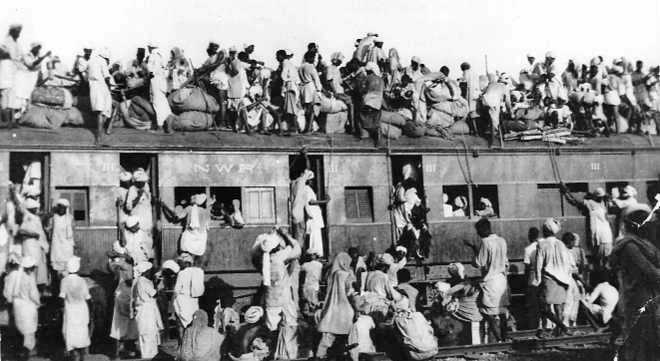
Som Dutt Vasudeva
IT is difficult to erase the memory of events that happened in Amritsar on the night of August 15, 1947. I was then a student of third year in the local Hindu College and was living with my grandfather in a sub-urban village, Sultanwind.
There was tension in the city following the arrival of trains from west Pakistan containing bodies of Hindus and Sikhs. The local administration had clamped curfew in the city and the adjoining areas to avoid any untoward incident. However, it was difficult to assuage the feelings of the residents of the city to the gruesome killings of innocent people.
A Baloch regiment of the army was drafted to control the situation, but instead of the tasked duty, it made Hindus and Sikhs a target of brutality. This army unit killed people with a vengeance. Even grenades were used to create fear in the minds of local residents. During the day, most Muslims had left the city for Lahore by omni-buses. There was an atmosphere of fear all around.
During this period, Jawaharlal Nehru and Liaqat Ali Khan toured the areas affected by communal riots. But the tour was just a formality as they were not made aware of the ground realities. I personally saw heaps of bodies lying in the vicinity of the mortuary of the local civil hospital before the visit of the leaders, but these were cleared before their arrival.
Standing on the roof of my house, I could see flames of fire engulf various parts of the city, especially Nimak Mandi, Shariff Pura, Hussain Pura and Katra Sher Singh. It appeared as if the entire city had become a hot furnace.
Despite this holocaust, one could witness bonhomie among most people. Hindus and Sikhs ensured that no harm was done to their Muslim friends and neighbours. There was a sizeable Muslim population in my village comprising washerman, arians (vegetable labour), blacksmiths, etc. They were escorted safely and there was almost no casualty.
I had a number of Muslim friends in the village and in the city who were critical of the division of the country on the basis of religion and openly assailed the Muslim League and its leadership. In fact, Punjabi Muslims were against the divisive politics of Jinnah.
I visited my Muslims friends in Lahore after the Partition. They said it was because of the divisive politics of leaders that thousands of innocent people lost their lives. This was not the concept of freedom that they had envisioned. Many of them are still wedded to their roots and want to return to their birthplace.
It is believed that people-to-people contact and removal of strict visa restrictions can solve many problems between the two countries since they have a common ancestry. If two Germanys can unite in national interest, why can’t India and Pakistan live in peace? Instead of resorting to firing at the border, they should make an earnest attempt to end poverty and raise the living standards of their people.























